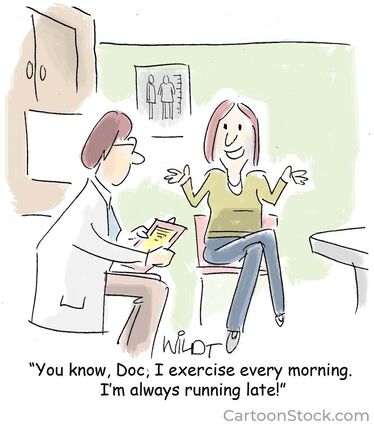|
Douglas Silas,
Specialist SEN Solicitor 18th October 2021.
We never leave ourselves enough time to do things, do we…
Today, I want to talk to you about being as realistic as possible when thinking about how long a task or project is going to take you. This comes from my own continuing personal experiences, as I am often guilty of not being realistic about time estimates for doing things (although I promise that I have been trying to improve on this day by day and week by week for many years!) We often very carefully plan out things that we want to do time-wise, but we still then find that things overrun on us a lot of the time and then also impact upon each other, so that eventually we run out of time to do everything that we had planned to do? People also call this ‘The Domino Effect’, as it is similar to a game of dominoes, where one domino impacts on another as it goes down, which then impacts on the next one and so on. In fact, 'The Domino Effect' also works between one person and another person doing consecutive tasks in a project. For example, if the first person does not leave themselves enough time to do their task, which needs doing before the second person can do what they have to do, when the first person is not realistic about how long their task is going to take them and then overruns, they will end up impacting upon the second person doing their task. So, even if the second person has actually left themselves enough time to do their task theoretically, they then are put under pressure and the whole project may run out of time practically, because the time that the second person had set to do their task has now been shortened because of the first person’s unrealistic time estimation about doing their own task. I am a big believer in ‘Time Blocking’, where you first specifically (as best that you can) determine the task that you need to do and then put corresponding time in your diary to do it. I usually try to be as realistic as possible, by not only estimating and allocating the time that I think that something is going to take me, but then double it! (Some people say that you should also double that again!!) The other thing to do is to always have or even write a plan. Be careful though, as you should not only write a plan, but you should then stick to that plan! And remember, things do not always go to the way that you planned them to go, so you always need to be prepared to expect and then adapt to new obstacles that present themselves as you go along. I heard someone once say that: “Plans are essential, but planning is useless!”, which I think is a wonderful way of putting it. But you at least need to have a plan from the start of any task or project. Curiously also, when you feel that you are running out of time, you will feel more stressed and probably will then not do as good a job, whereas when you leave yourself more than enough time to do a task and finish it earlier than you had planned to do, not only do you then have time left over, you then feel less stressed and often do a better job too! So this week, if you find yourself running out of time to do things, even though you thought that you had planned for them to be done in a certain space of time, step back and think about what I have said. You may also be surprised at how much more you can actually do when you are genuinely realistic about your time estimates.
In this week's SEN Update, you will find sections entitled:
I know how busy everyone always is, so please feel free just to read the sections that are of interest to you or read everything; the choice is always yours.
SEN NEWS
A few days ago it was Developmental Language Disorder (DLD) Awareness Day. As the Department for Education (DfE) puts it, Developmental Language Disorder is diagnosed when a child fails to acquire their own language for no obvious reason. Children with DLD often find it difficult to understand others and struggle to articulate their ideas and feelings. DLD affects on average 2 students in every class of 30 and it is s therefore crucial that schools are able to meet the needs of these pupils. In an email I received later that day from the DfE, it also said: "This year’s DLD Awareness Day campaign is asking teachers to #ThinkLanguage #ThinkDLD. The organisation 'Raising Awareness of Developmental Language Disorder' has produced a set of resources to support teachers to understand, identify and support those with DLD. These resources can be accessed at: https://radld.org/dld-awareness-day/resources-media-ideas/teacher-kit" (It is on a website called: RADLD.ORG, which was created to Raise Awareness of DLD, where you can learn more about DLD, access resources and find out how to raise awareness.) I have also seen many other bits of information/resources on the web this week, so please do an internet search if you want to find out more.
NEWS ONLINE
In terms of news, here are the articles that I found of interest this week:
USEFUL INFORMATION
Again, aside from clicking on the relevant links for more information, I would also remind you of the very useful resources and information provided on the following websites: - IPSEA - Council for Disabled Children - Special Needs Jungle I would also highlight again the magazines: SEN Magazine and Autism Eye which are both very helpful to any parents or professionals involved with children/young people with SEN. Keep safe until next week. With best wishes Douglas
P.S. Don’t forget, to ensure that you never miss one, you can get my SEN Updates personally by completing your email details above, or by following me on one of the social media platforms I use (i.e. Twitter/Facebook).
P.P.S. You can also share this SEN Update with others (please only do so if it may be relevant to them) by using one of the icons, usually to the right or at the bottom of this page.
How useful do you find my SEN Updates?
Created with Quiz Maker
Comments are closed.
|
Archive
March 2022
|
© Douglas Silas Solicitors 2005-24
Authorised and Regulated by the Solicitors Regulation Authority (SRA no: 643718)
‘Douglas Silas Solicitors’ is the trading name of ‘Douglas Silas Solicitors Limited’, a limited company registered in England & Wales (company no: 10689991), whose registered office is Gable House, 239 Regents Park Road, Finchley, London, United Kingdom, N3 3LF. A list of members/directors may be inspected at our office.
Authorised and Regulated by the Solicitors Regulation Authority (SRA no: 643718)
‘Douglas Silas Solicitors’ is the trading name of ‘Douglas Silas Solicitors Limited’, a limited company registered in England & Wales (company no: 10689991), whose registered office is Gable House, 239 Regents Park Road, Finchley, London, United Kingdom, N3 3LF. A list of members/directors may be inspected at our office.





 RSS Feed
RSS Feed







